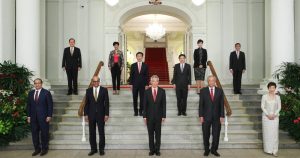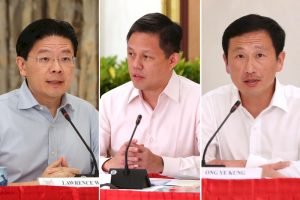Top image credit: Zachary Tang/RICE file photo
‘Work’ is the theme for this year’s Institute of Policy Studies (IPS) conference, and it seems more apt than ever.
In the last two years, the idea of work has been discussed at length, given the upheaval of our usual 9-to-5s at the hands of Covid-19. The notion of work has never been the same since, even more so with the news cycle of tech layoffs and a looming recession.
Ever the eager beaver when it comes to future-proofing the economy, IPS’ 2023 keynote address, given by Education Minister Chan Chun Sing, focused on fundamental tenets of learning. The minister spent an hour outlining how education is the key to equipping Singaporeans for the ever-changing and capricious job market.
Mr Chan addressed a couple of salient points in his speech, including a focus on adult learning and the introduction of the Teacher Attachment Plus Programme.
Still, while those points display an understanding and an encouraging bid for inclusivity, his outlook on revamping and kickstarting the education system to encourage innovation, ironically, offers nothing nascent or groundbreaking.
It does, however, offer us great insight into how the government plans to manage (as they are always wont to do) a working economy that doesn’t fit neatly into the prescribed boxes they’ve so easily placed Singaporeans in for a good decade or so.
As work becomes influenced by technological, generational, and social shifts, it’s clear that uncertainty looms over the air now. From Mr Chan’s speech, it’s evident that Singapore worries that its population, should they not take affirmative action today, would be trapped in a rigid pattern of work and be left behind.
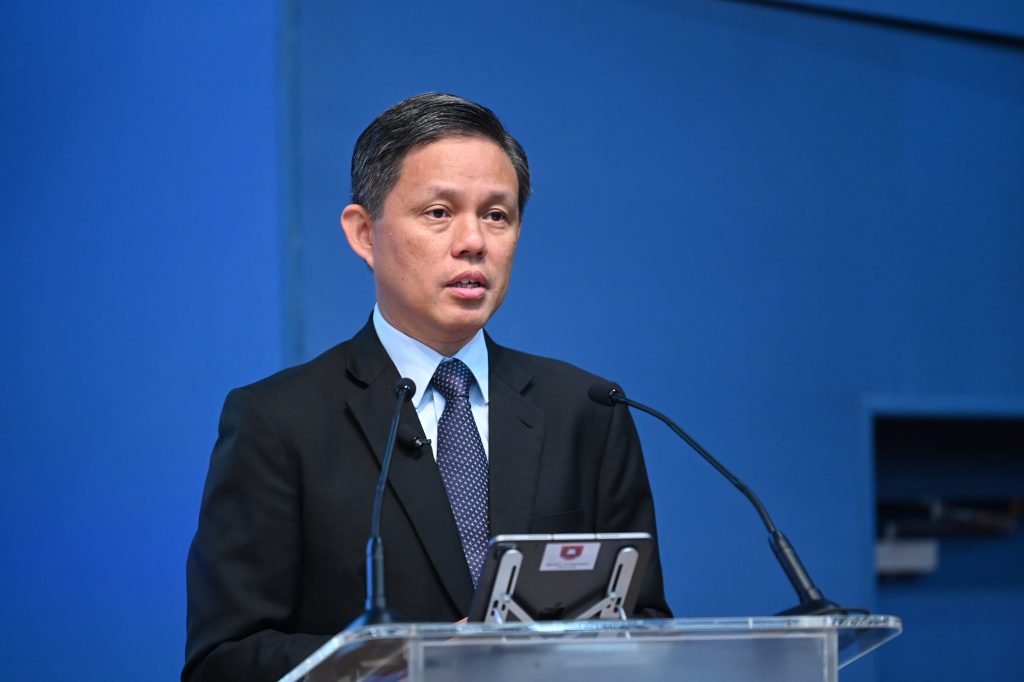
An Overly-Prescriptive Plan
In his keynote address, Mr Chan puts forth, “if we truly believe in nurturing resilience and building confidence in our young people to face an uncertain and untidy world, we must also be careful to not over-structure, over-provide, or over-protect our younger generation, which would deprive them of the opportunities to grow and learn.”
His remarks came on the back of Singapore’s framework for education, which has been incredibly successful in producing academic excellence—but has also resulted in individuals who never dare to colour outside the lines.
In his effort to move away from such a stringent and structured curriculum, Mr Chan offers up more buzzwords. “Mass customisation” as a remedy, where there will be “more adaptive learning technologies and pedagogies enabled by data to bring out the best in each child.”
Educational customisation is commendable and forward-thinking, but this course of action still falls within the narrow confines of doing well in school.
And while tailored pedagogies are advantageous, it does not push the envelope far enough to foster adaptable and elastic individuals for an “untidy world”.
We can perhaps take a cue from countries such as Finland, which eschews the traditional college degree as the final pitstop in their student’s education journey by offering two possible paths. One is where students enter Upper Secondary Education and sit for a matriculation exam three years later. The other is a three-year program that focuses on vocational training with an option to sit for the matriculation program should they want to enter university.
On the point of exposure, MOE has a concerted effort to “renew our push to send more of our students overseas for exposure. And more of them to the less trodden paths.” This idea of overseas exposure is not particularly new or groundbreaking, but the action plan overlooks many untapped opportunities that have yet to be uncovered right in our backyard.
A faster and more effective method of exposure could be apprenticeships as opposed to internships. Like many countries in Europe that already have this in practice, apprenticeships are seen as an alternative to tertiary education, seeing as they are longer than internships and paid more, which positions apprentices in a better position to wade through the treacherous waters of the modern job market.
Also, the definition of exposure should be expanded to include introducing students to people who not only succeeded but who have chosen differently or went down truly “less trodden paths”. Beyond mere recognition, celebrating the idea that it’s okay to choose differently should be par for the course.
Innovation With No Risk-taking
In his speech, Mr Chan admits that in our Research-Innovation-Enterprise (R-I-E) cycle, we have done well in the research portion but less so in the other two. It’s a predictable outcome of a society that leans on being absolutely knowledge-based.
He continues that instead, “the spirit of inquiry, the desire to create new knowledge and value, the ability to discover, discern and distil—these are our new competencies and benchmarks of success”.
How he purports we reach this goal is to “review the way we organise ourselves and the incentive structure for our R-I-E institutions to do this better”.
Even though Mr Chan’s intention is sound, innovation and creativity are not predictable by any means. Innovation often happens by accident—in the throes of boredom or even play. It certainly won’t be encouraged by prescriptive methodologies.
Rather than incentives and more “structured innovation”, what’s needed is a mindset shift that emboldens everyone to take risks. Even as the risk of failure hangs heavy over their heads.

Strides in Adult Life-Long Learning
And as much as we want to get outside the box and push boundaries, there is something to be said about recognising the strength of adult learners and the various ways to support them.
No longer the forgotten sibling of Skillsfuture, Mr Chan mentions, “our institutions also need to redesign andragogies to meet the needs of adult learners and enable them to learn anything, anywhere, anytime, amidst the competing familial and financial responsibilities”.
Mr Chan further iterates how he wants the Institute of Adult Learning (IAL) to be the third pillar of Singapore’s teaching fraternity’s professional development. The other two are the National Institute of Education (NIE) and the National Institute of Early Childhood Development (NIEC).
It’s an inclusive move that considers all kinds of learners and their differing struggles, whether it be family commitments or requiring financial assistance. It also goes a long way in keeping the older worker nimble in the face of the changing landscape of work.
What would have been even more enlightening: Further details on how adult learners can better benefit and integrate into the industry of their choice beyond just taking a course that has little to no impact on the future of work.
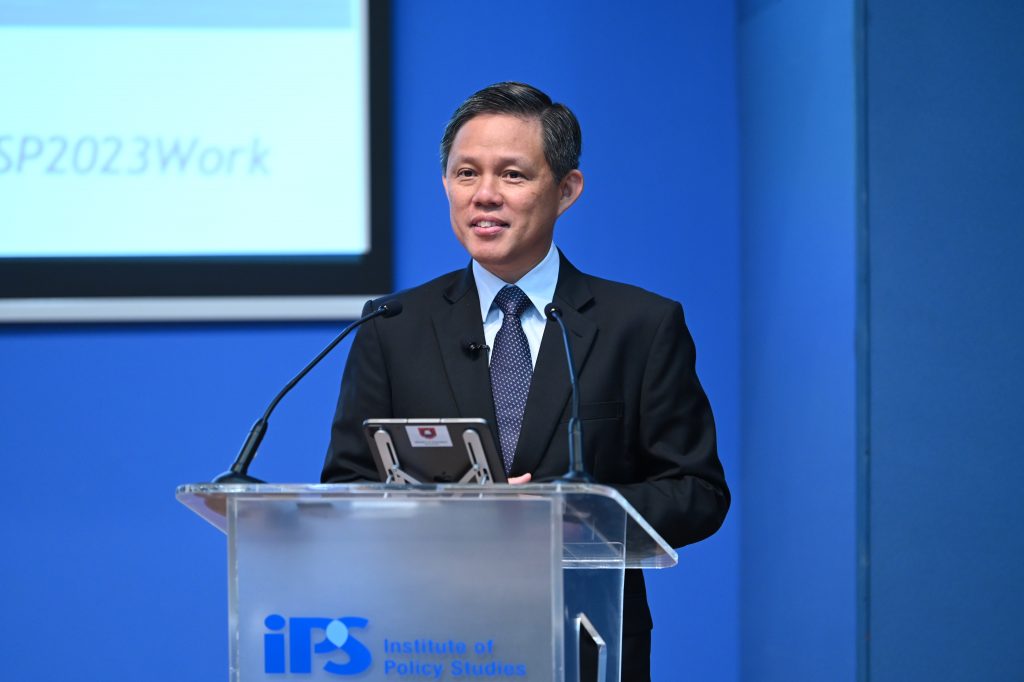
Teachers Out in the Field
One of the more meaningful moves put forth by Mr Chan to truly help the students face the uncertainties of the workforce is the Teacher Work Attachment Plus programme.
We applaud this move. As much as students need to be exposed to the real working world, so do their teachers. While teachers play an immeasurable role in nurturing students, they operate in somewhat of an academic bubble. In school, syllabuses and the Ten-Year-Series thrive instead of real-world KPIs and client calls.
Going out into the field equips teachers with the practical and helpful skills to help students and gives them a deeper and more complex understanding of what happens in the working world. Through their experience on the ground, they can impart more pertinent skills to students than any textbook can.
Bringing teachers closer to the realities of a new world of work is a good thing. But will there be systemic support for the initiative? If the programme tacks on the burden of teachers (already busy with schoolwork and classroom management), it’ll just be extra work.
Mr Chan and his ministry would do well to consult teachers on how their work in school can be sufficiently alleviated and managed so that they can immerse themselves fully and completely in the work attachment programmes they sign up for.
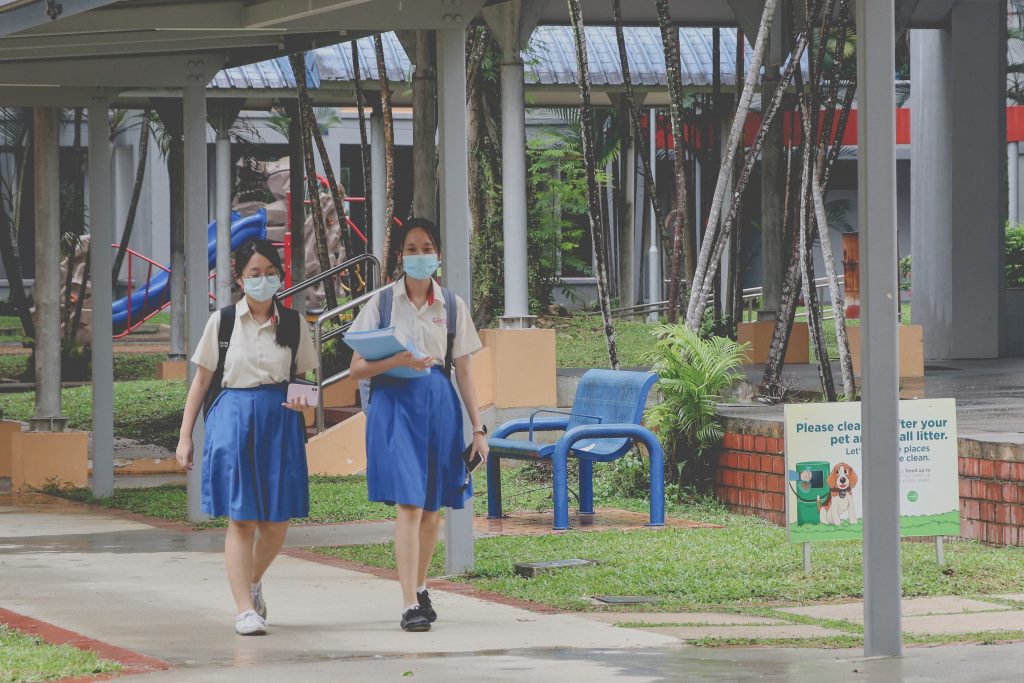
Same, Same and No Different
A close examination of Mr Chan’s speech would reveal that we are still not ready to move past the comfortable confines of a rote education framework with cleanly demarcated parameters.
While Mr Chan does suggest some progressive plans that complement the world today, much of it feels like an idea we already know repackaged with a deceptively shinier veneer.
We must acknowledge that the world looks very different from when it did two years ago; work, school, and everything in between has irrevocably changed. We can no longer count on the same ideas we’ve cruised on for the last ten years.
A knowledge-based economy can no longer be counted on to navigate the uncertain waters of work today. After all, as scary and unrecognisable as the world is, an overly cautious approach will only lead us in circles, and we might end up not moving at all.





